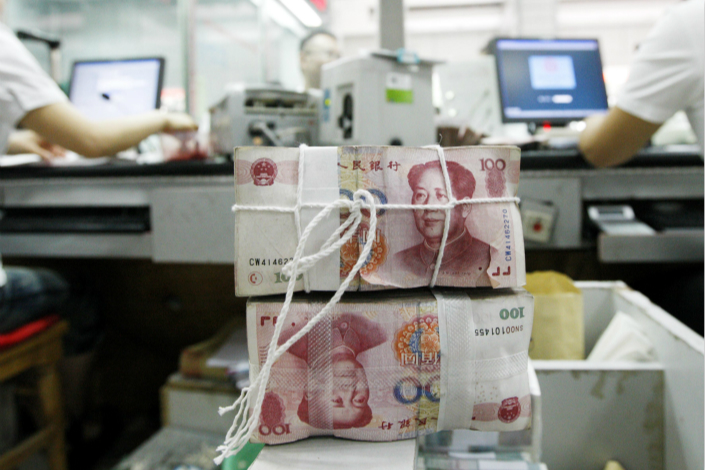Extensions Possible for New Asset Management Rule Compliance: Regulator

 |
|
|
China could delay the deadline for some financial institutions to comply with sweeping new asset management rules released in 2018, a regulatory official said Saturday, after some firms said they could face difficulty meeting the original December 2020 deadline.
Financial institutions that find it hard to bring their large volume of asset management products into compliance by the original date may receive “appropriate” grace periods, Cao Yu, vice chairman of the China Banking and Insurance Regulatory Commission (CBIRC) said Saturday. He made the comments at a briefing where financial regulators announced steps to support the economy in the face of the coronavirus outbreak.
Cao’s statement was widely seen as the first explicit regulatory response on potential extensions to the deadline for compliance with the new asset management rules. The banking watchdog hinted last month about a potential extension, but it did not make any formal announcement.
China’s overhaul of its $16 trillion asset management industry is part of a broader Beijing-led campaign to rein in financial risks and control leverage that many warned was at dangerous levels in the financial system. The revamped asset management rules were particularly targeted at curbing off-balance-sheet “shadow banking” activities that were increasingly seen as a risk to financial stability.
Many commercial banks, faced with having to make significant changes to their asset management operations, balked at the deadline and lobbied regulators to extend it.
Speculation that the target date would be extended has increased over the past few months, and was further fueled in December after analysts at Zhongtai Securities, a Shandong province-based brokerage, sent a message to clients that the deadline for compliance would be extended for three years to the end of 2023.
If Cao’s words are implemented, it would mark the deadline’s second extension since an initial draft released in November 2017 originally gave asset managers until June 2019 to comply. That goal was subsequently pushed back by 18 months to the end of 2020 when the final version of the regulations was released in April 2018.
The regulator hinted last month that it is likely to grant any extensions on a case-by-case basis rather than use a one-size-fits-all policy. Caixin has also reported that watchdogs have considered (link in Chinese) imposing different requirements on large banks.
The talk of extension comes as China’s economy is hit hard by the outbreak of a novel coronavirus, which has infected more than 17,000 people in China and killed over 360 as of Sunday, according to official data. Many businesses remain closed in response to the virus, though some began opening Monday after an extended Lunar New Year holiday.
Cao said at the briefing that the epidemic will have a definite impact on China’s financial markets but it will be short-term. Stock markets in Shanghai and Shenzhen fell about 8% when trading resumed on Monday after the long Lunar New Year holiday, as commodities and the yuan also took similar hits.
China’s central bank will inject sufficient liquidity to financial markets through monetary policy tools such as open market operations, standing loan facilities, relending and rediscounting, according to a Saturday statement (link in Chinese) released by several top financial regulators.
Pan Gongsheng, a deputy governor of the People’s Bank of China, also said that the central bank will offer 300 billion yuan ($42.7 billion) in low-cost funds to major national and local banks in Central China’s Hubei province, which is at the center of the outbreak, for them to provide low-interest loans to enterprises that produce urgently needed medical supplies and daily necessities.
Guo Yingzhe, Tang Ziyi and Wu Hongyuran contributed to this report.
Contact reporter Timmy Shen (hongmingshen@caixin.com, Twitter: @timmyhmshen) and editor Doug Young (dougyoung@caixin.com)
Caixin Global has launched Caixin CEIC Mobile, the mobile-only version of its world-class macroeconomic data platform.
If you’re using the Caixin app, please click here. If you haven’t downloaded the app, please click here.







